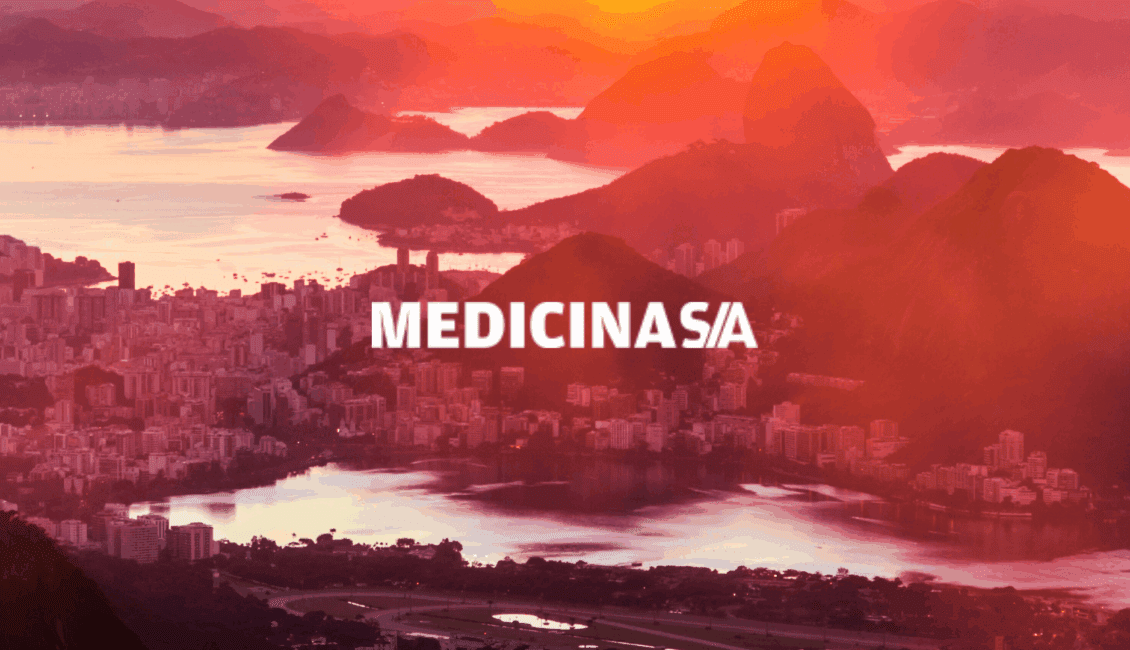
Congress highlights Integrative Medicine as a pillar of public health
Medicina S.A., one of Brazil’s leading health sector outlets, reported that Integrative Medicine is being positioned as a pillar of public health in response to global challenges such as chronic diseases, mental health, and medication side effects. The article highlights Brazil’s advances through its National Policy on Integrative and Complementary Practices (PNPIC), which already provides millions of free consultations within the Unified Health System (SUS). It also underscores the role of the upcoming 3rd World Congress on Traditional, Complementary and Integrative Medicine (3rd WCTCIM), to be held in Rio de Janeiro in October 2025, as a milestone for evidence-based global health.
Full article (in Portuguese) on the outlet’s website: Congresso destaca Medicina Integrativa como pilar da saúde pública
English version
The greatest global challenges in public health – the management of chronic diseases, the mental health crisis, the side effects of medications, among others – demand new responses, as well as the promotion and prevention of diseases. The World Health Organization (WHO), the Ministry of Health (MS), and the Brazilian Academic Consortium for Integrative Health (CABSIN) are among the key players who, together with researchers, health professionals, and civil society organizations, have been coordinating efforts to position evidence-based Traditional, Complementary and Integrative Medicine (TCIM) as part of this response.
In Brazil, the movement has been gaining scale. Based on the National Policy of Integrative and Complementary Practices (PNPIC), which will complete 20 years in 2026, the country is one of those that offers integrative practices free of charge, to the entire population. In 2024, the Unified Health System (SUS) recorded more than nine million appointments in Integrative and Complementary Health Practices (PICS), especially in primary care – a 70% increase in just two years, according to the Ministry of Health. The impact on patients’ quality of life is confirmed by research published in leading scientific journals.
3rd WCTCIM, October 2025, in Rio: a global milestone
Because they are essential to the advancement of TCIM worldwide, scientific evidence will be present in all presentations taking over the Riocentro Convention Center, in Rio de Janeiro, from October 15 to 18, 2025, during the 3rd World Congress on Traditional, Complementary and Integrative Medicine (3rd WCTCIM). For the first time in Latin America – after Berlin and Rome – the World Congress will bring together health leaders from all continents, public policy specialists, researchers, and health professionals to debate how the evidence base in TCIM can support the transformation of health care and redefine the future of care systems.
The event is led by the Brazilian Academic Consortium for Integrative Health (CABSIN) in partnership with the International Society for Traditional, Complementary and Integrative Medicine Research (ISCMR) and the European Society of Integrative Medicine (ESIM). It is worth noting that CABSIN is a partner of the Latin American and Caribbean Center on Health Sciences Information (BIREME/PAHO/WHO) in building Evidence Maps, strategic tools for the implementation of public policies. These synthesize thousands of international scientific reviews and organize, by topic, the level of confidence in the clinical effectiveness of practices such as acupuncture, herbal medicine, yoga, meditation, on outcomes such as chronic pain, cervical cancer, cardiovascular diseases, mental disorders, among others.
During the 3rd WCTCIM, there will be the pre-launch of the World Health Organization Traditional Medicine Global Library (WHO TMGL) – an initiative of the WHO Global Traditional Medicine Centre (GTMC), which already brings together about 1.7 million indexed publications in the field, with open access; and the creation, in partnership with WHO, of the Global Alliance of Consortia and research institutions from the six world regions. The meeting will also mark the 20th International Congress on TCIM Research and the 17th European Congress on Integrative Medicine.
Abstracts approved from 47 countries
During the submission phase, the 3rd WCTCIM received 842 abstracts – an unprecedented response from the scientific community, compared to previous editions of the world congress. Mental health, integrative oncology, women’s health, herbal medicine, nutrition and lifestyle medicine, Indigenous science, integrative pediatrics, pain management, planetary health, digital health, Traditional Chinese Medicine, art and medicine, microbiome and the gut-brain axis, as well as cannabinoid medicine led the submissions, reflecting the priorities of SUS and the research focus worldwide.
After peer review processes by the Scientific Committee, 686 abstracts, from 47 countries, were approved for presentation, including 419 research abstracts, 210 experience reports, and 57 clinical case reports. The approved works will be published in a special supplement of Frontiers in Public Health, the official scientific journal of the 3rd WCTCIM, ensuring broad international visibility and scientific dissemination. Approved experience reports will be published by the IdeiaSUS Fiocruz platform as a permanent repository.
WHO: Global Strategy 2025–2034 and research prioritization in TCIM
In addition to being the year of the 3rd World Congress on TCIM, 2025 marks WHO initiatives of fundamental importance for the field, such as the approval in May during the World Health Assembly by 170 countries, of the WHO Global Traditional, Complementary and Integrative Medicine Strategy (2025–2034). The document defines goals to expand access to safe, cost-effective, and culturally appropriate practices, guiding national policies for the next decade.
WHO has also been organizing “Regional Consultations for Research Prioritization in TCIM,” across the six global regions, with the aim of identifying research gaps, defining priorities, and aligning recommendations with local realities. In Brazil, PAHO/WHO gathered government, public managers, academia, researchers, and representatives of traditional communities from Latin America in June, in São Paulo.
“The integration of TCIM into the biomedical model is an irreversible process, supported by science, public policies, and consolidated experiences. The simultaneous progress of WHO, the Ministry of Health, CABSIN, and so many other governments and organizations worldwide demonstrates that the future of health depends on combining traditional knowledge, scientific rigor, and person-centered care practices. TCIM is not peripheral, but a central part of a more sustainable and equitable health,” highlights Prof. Ricardo Ghelman, WHO Advisor for TCIM, founder and current vice-president of CABSIN, and chairman among the six presidents of the 3rd World Congress.
As part of WHO’s efforts to position TCIM as a strategic component of public health, there is the Global Traditional Medicine Centre (GTMC), inaugurated during the 1st WHO Global Summit on Traditional Medicine, in parallel with the G20 Health Ministers’ meeting held in that country, in 2023. The center, WHO’s first dedicated exclusively to TCIM, acts as a global reference hub in research, innovation, and data analysis, in addition to hosting the Global Traditional Library.



